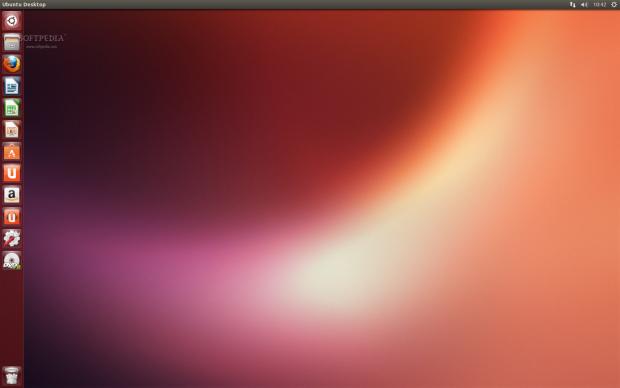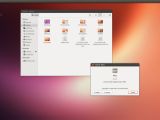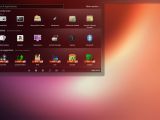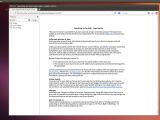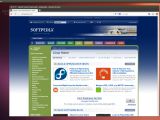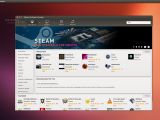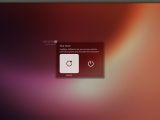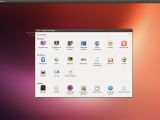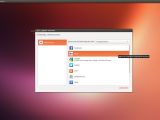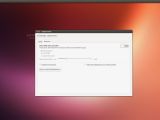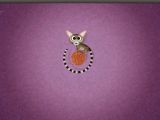Ubuntu 13.04 (Raring Ringtail) has been launched by Canonical, and from what we can tell so far, this is the best one yet.
We have gotten used to receiving small doses of Ubuntu every six months. The visual changes aren't significant from one version to another (with the exception of Unity), but if we compare 11.04 with 13.04, they seem to be completely different products.
Despite the constant innovation, Canonical looks like a very conservative company. It only pushes small updates and it usually frowns upon big new features.
On the other hand, 2013 has been the busiest year in Canonical's history. They announced Ubuntu for phones and tablets back in January, and they have promised to provide a single version for all platforms starting with Ubuntu 14.04.
Ubuntu 13.04 is not an LTS release, but it garnered a lot more attention and interest than any other version launched so far. The expectations were high, but Canonical hasn't let us down.
Installation
Users can choose either to install Ubuntu 13.04 or to upgrade from a previous version. We can say, without any doubt, that a clean install is always the preferred solution. Thus, you can gaze upon the updated installer prepared for this version.
If you really have to update the operating system, instead of performing a clean install, there is a simple way to start the process. If the update prompt doesn't show up, for some weird reason, you can simply force it by running two simple commands in a terminal: sudo apt-get update sudo do-release-upgrade
Presentation
Now that we've booted into Ubuntu 13.04 (Raring Ringtail), we can finally analyze the changes and improvements.
The first thing you will notice is the slightly different default background, which still has the same boring orange-ish theme, but which can be easily fixed by right-clicking on the desktop and selecting a different one. The good news is that the distribution now ships with a few usable wallpapers.
In the same menu, under the Behavior tab, you will find the options to enable the Workspace Switcher and the Show Desktop buttons. Both have been removed from Unity, by default.
Unity has received many changes, but most of them are under the hood, such as improved memory consumption. Besides the Social Lens, which is activated once you set up your Online accounts, there is only one major new feature in Unity.
Users can now right-click on any Unity icon and switch directly to another function of the software. For example, uses can open the Contacts menu from right-click on Thunderbird, without having to bring the application up front.
Another subtle change in the window snap animation. Up until now, when we dragged a window to one side of the screen, an orange shadow would indicate the snap effect.
This effect has been tweaked now and it shows, ever so slightly, a very fast preview of the window that is being docked. Also, the speed of the minimize animation has been increased, in comparison with the 12.10 release.
Other changes in Ubuntu 13.04 include On/Off switches for the social networks (in Online Accounts), a new shutdown dialogue, a new Ubuntu One sync menu, and other smaller changes.
It's also worth mentioning that the distribution comes with the latest branch of LibreOffice, 4.0, which is a real treat as it blends very well with the operating system.
The last notable and visible change is for the Software Updater. It's now a lot more human and it groups the updates in a more readable fashion.
The Good
In Ubuntu 12.04 and Ubuntu 12.10, we were flooded by various small errors and some of the packages (like the weather indicator, for example) would crash almost on a daily basis.
Either Canonical has hidden away all those errors under a mat, or they've actually fixed most of the issues. Either way, this version of Ubuntu shapes up to be the most stable and reliable release to date.
The other major difference, that any Ubuntu user will notice straight away, is the speed of the system. It's faster than 12.10 and everything is more “snappy” and ready to go.
The Unity UI also received some notable improvements and some of the default applications now have new icons.
The Bad
Another point of contention is the removal of the Show Desktop and Workspace Switcher buttons. I can understand removing Workspace Switcher, which isn't used all that much, but the Show Desktop button is a necessity on any operating system.
The last criticism has to do with the shutdown dialogue. Don't get me wrong, the new one is gorgeous, but it's beyond me why they've chosen to leave out Log Out and Suspend.
To complete this weird choice, the Suspend button has no prompt on it, so if you happen to push it by mistake, the computer goes right to sleep.
 14 DAY TRIAL //
14 DAY TRIAL // 
